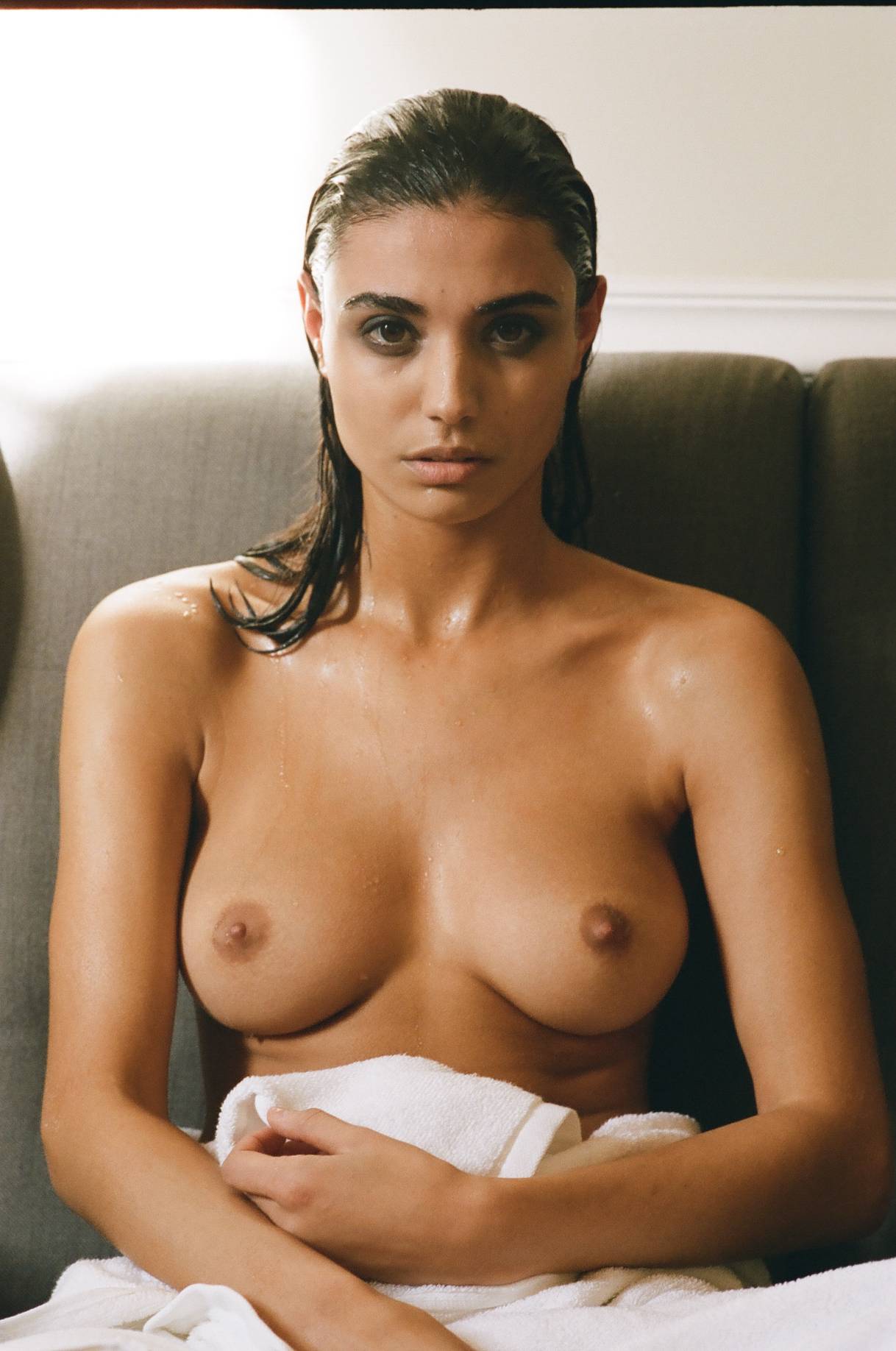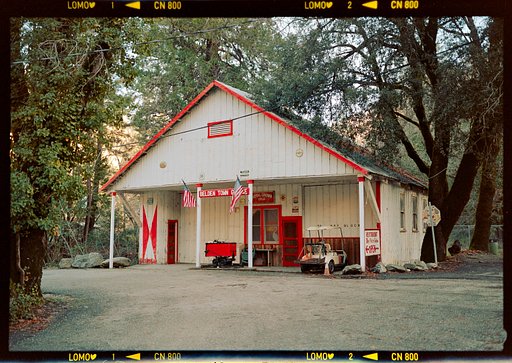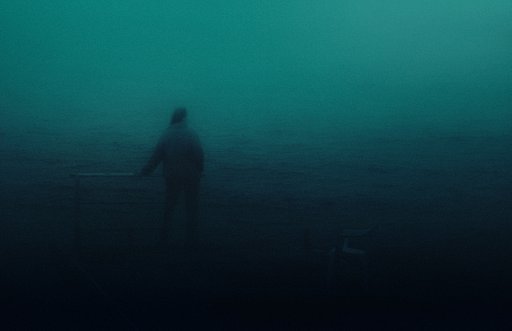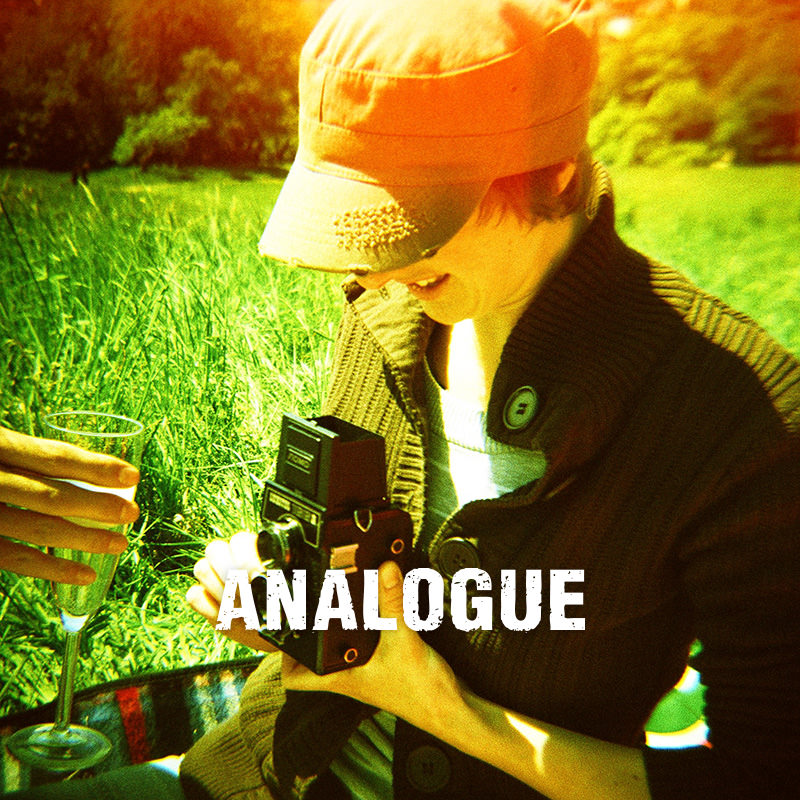Photographic Memory: An Interview with Atisha Paulson (NSFW)
1 30 Share TweetAtisha Paulson chases light and makes wonderful use of it. His subjects are at ease, knowing that they're in the hands of an image maker - a skilled and talented one at that. In this quick interview, Paulson lets us get closer as we talk to him about photography, his musings, and everything in between.

Hi, Atisha! Please introduce yourself to our readers.
Hi. Thanks for having me. I'm from Santa Barbara, California but I live in Brooklyn, NYC. I moved here about 11 years ago, unsure of what i wanted to do with my life (i was 30). I had studied visual arts in school (UCSD) so i figured this was a good time to try and put my degree to use. Early on I got an internship with a photographer, hoping to learn the ropes. He told me one thing I'll never forget. He was asking me how I planned on supporting myself while I pursued my artistic endeavors. I said something to the effect of working in a restaurant, bartending or waiting tables. He said, "I hope you like it and you're good at it cause you're going to be doing it for the next 10 years. That's how long it's gonna take for you to make a living at this thing." Of course i didn't believe him. I was young and dumb, still bringing my underwhelming portfolio around to the BEST galleries in Chelsea, thinking this was all just going to work out because I wanted it to. Well, he wasn't exactly right. It took about nine and a half years but it was worth it. Every now and then I think of him, how smart he was and how naive I was. Funny how things go.

Who is Atisha Paulson when not shooting? What do you do on your down time?
When I'm not taking photos I'm doing typical stuff. Hanging out with friends, reading in the sun, riding my bike around town looking for a good sandwich. Trying not to let my phone dictate my life. I wasn't on IG (Instagram) until about 3 years ago when my wife told me I had to give in to technology and get with the times. I finally did and it's the best worst thing that ever happened. I think i gave myself ADD at 40. Not to mention, carpal tunnel syndrome.
Tell us about how you discovered photography. Was it always something that was innate/natural or was it something you learned?
I discovered photography because my parents were Buddhists. When I was like 13, I really wanted a BB gun. all my friends had them and it was totally normal to roam the hills, rifles in hand. But my parents hated guns and decided to give me a camera instead (Nikon FM2). I think I cried and said I hated them. Such a typical bratty kid. My dad got me a tutor from Brooks Institute and he'd come over once a week and we'd walk around the neighborhood taking pictures. He was really cool and I grew to like and appreciate him for taking the time to not only teach me something new, but to hang out with me. He taught me about f-stops and shutter speeds and all that stuff. But more than anything, he taught me to see something, point the camera at it and press the button. It was so simple back then and still can be for time to time.

What’s your favorite thing about photographs?
I like that photographs offer insight into how other people see + process the world. How many times have you wondered what the world looks through someone else's eyes? Or even, what it would be like to be someone else, for an hour, a day, a year, a life. I think photographs offer a glimpse into those worlds, secret spaces that are unlocked by pushing a button. Godard said "Photography is truth. The cinema is truth twenty four times per second." And he was right, sorta. Photography is a kind of truth, it's certainly not absolute. It's the truth we make up, the truth we choose to capture and convey. It's also just a fucking selfie on a cell phone so there's that. Maybe it's somewhere in between. Who really knows anymore. Look how much the world has changed since the advent of the cell phone. Images are more accessible and yet, more disposable than ever before. They're more powerful but we're more desensitized. We scroll past them in the blink of an eye and it's almost like they never happened. Maybe there's a residual quality that remains with us on a subconscious level but probably not. There's no more room in our brains. We're oversaturated with images telling us what to buy and who to be. I don't know... it's all very confusing.
What would you say was the most important subject you’ve ever photographed?
Impossible for me to say because "important" is such a subjective term and what's important to me isn't important to the person around the corner. I did spend a Summer working for and documenting David LaChapelle. That was one of the most important moments of my young career because I was able to be around a creative genius. People throw that term around very loosely these days but when you find yourself in the presence of a true visionary, it's awe inspiring. I remember being at dinner with him in LA, we had just wrapped a massive Clinique commercial that he had directed and that I had done BTS video on. I was sitting next to him in a high backed, red leather booth in a trendy overpriced Mexican restaurant on Sunset. He was showing me some of his new work on his cell phone and my brain was having difficult time swallowing the beer while simultaneously comprehending how he had come up with these mind blowing images. I asked him, point blank, where the ideas come from and if I remember correctly (which we all know I often don't) he said something to the effect of "In my dreams... they come to me in my dreams." Ever since then I try and get as much sleep as I can.

What can you say about ‘photography as an art or expression?’
I don't know. I'm not an expert on art or expression. I have an opinion but it really only applies to my philosophy on life which is basically that I have a TERRIBLE memory and photography serves to document my existence and the existence of those I come in contact with, it's a proof of life sorta thing. Obviously that doesn't apply when I'm shooting a wine bottle for a client, but when I'm taking pictures for me, of people I like, places I go, that's when I think in those terms. For example, I met my wife at some lame party 8 or 9 years ago. We had some friends in common. They introduced us. She had a boyfriend. I had a girlfriend, nothing came to pass. Until a year or 2 later. She doesn't really remember meeting me, I sorta remember meeting her but not really cause it was an open bar. But, somewhere on my hard drive, I have some photos from that night. and I can see exactly what she was wearing, what i was wearing, my horrible haircut, the friends we used to have... know what I mean?

It’s a good thing that photography is there to capture what your memory won’t allow, isn’t it? So do you plan your photographs (memories you want to capture) or is it more like a spontaneous thing with you?
I don't really plan things specially. I mean, there's definitely a general idea or direction that we're headed in but I prefer things to take on a life of their own. People often ask me what kind of camera they should buy and I always say, "one that you'll take with you everywhere you go." It's like Bresson said, "Your first 10,000 photographs are your worst." So you might as well get them out of the way. I think that's why I gravitated towards a rangefinder. It was small enough that I could put it in my backpack and not feel like I was carrying around the weight of the world. It's also very sturdy so I didn't have to worry about banging it around town. Lastly, it's fairly innocuous, meaning you can point it in someone's direction without eliciting reactions of panic. To answer your question, I more or less bring my camera everywhere so that if a memory is to be made/documented, I'm prepared to do so.
How does your professional work differ from your personal photography?
I think my goal is to merge them, or make them as overlapping as possible so that you can't tell which one i got paid for and which one I didn't. Well, since I live in New York and have lots of bills, that's not entirely possible. So when I'm on a job, I'm working with others, specifically a client who has a vision and I'm there to execute it, but with my own personal aesthetic(more or less since that's why they hired me).
Let’s say you’re given a vision by a client, how do you translate it into photographs? Is there a formula that you follow?
What usually happens (to me) is a client will reach out via email with a proposed project (see recent attached works). Generally speaking, they have a fairly good understanding of my aesthetic. They have researched my website/Instagram and determined that their brand and my work are compatible. Because sometimes they're not and that's a problem. If a client shows me a mood board and it doesn't look like anything I've ever done (or would ever do), then it's disastrous if we don't discuss direction. At the end of the day, the client is my boss and it's my job to give them what they want. So if they hire me for something and I don't deliver (what they want), it's a failure. That's why I'm always super upfront with them from the get go. I want them to know that more often than not, what you see is what you're going to get. And if you like it, great... But if you don't, then I might not be the right fit for you. Through trial and error I've learned (and am still learning) that over communication is essential. Not only do you want to be on the same page as the client, you want to be on the same sentence. In this industry, a good client is your lifeblood. I've been working with Sixty Hotels for 2+ years. I shoot something for them at 2 or 3 times a month. As a freelancer, I rely on relationships and make every attempt to ensure that they're well cared for and that I always deliver on time.
In what area of photography do you think you feel most comfortable in?
I like taking pictures of people in casual situations where they can be themselves, let their guards down. I like getting them to trust me to make them look good. I understand how uncomfortable it can be to have a camera pointed at you. I dislike having my photo taken so much that I make awkward faces and hand gestures to compensate for my unease. I always say, "If you don't look good, I don't look good." And it's true. No one ever booked another job making someone look like shit. But for me, it's a fine line because my photos don't necessarily make people look "better." Usually they look like what they look like, for better and for worse. I suck at retouching so I rarely do it and since I shoot mostly all film, I don't have to because that's the sorta immediacy I want in my work.
What do you like most about shooting casual photographs/shots of people? You seem to have a good relationship with your subjects. How can you achieve that level of comfort?
Working with people takes a certain skill and to be honest, I honed mine in the restaurant industry. My parents had a restaurant in Santa Barbara and I grew up working behind the counter. In college, I waited tables to pay the rent. When I moved to NYC, I did the same while trying figure out how to make a living making art. Unless you're independently wealthy or a genius, you're going to have to find a way to subsidize your income. Working in a restaurant afforded me the ability to take photos during the day and work at night. I was also surrounded by a fleet of talent, all trying to make it in New York. So I never felt alone in my failures or my successes. But back to your question.... Waiting tables is like making fast friends. You have 2 hours to maximize the guests' experience. And every guest is different. Some want to talk, some don't. Some are assholes, some aren't. Some want the world and others just want you to anticipate their needs. And that's an invaluable skill to learn and it doesn't happen over night. Learning to read people, make them feel comfortable, get them to trust you to order this dish or this bottle of wine. To be able to walk up to a table of 4 total strangers, say hello, and go from there. It's the same with photographing people. Often, when I'm on assignment, I have no idea who the subject is and I never research them because I want each and every experience to be new and unfold like a drawn out conversation punctuated by frames.

What’s your favorite subject? Where do you draw inspiration?
I photograph a lot of women and that's probably because I relate well to them. I was mostly raised by my mom and I have two sisters and a very powerful wife so there's a sensitivity inside me that allows me to communicate better with women than men. But it's a fine line, too because I have to continuously define what it means to objectify someone, what the male gaze means in contextual terms and what role I play in perpetuating it. I'm still learning everyday. And my mother-in-law is always in the back of my head looking over my shoulder. Or at my Instagram.
How would you describe your style in five (5) words?
Basic. Raw. Immediate. Simple. Transient.
In your opinion, what are the characteristics of a good photograph?
Light and subject matter.
What’s your favorite photograph? Why?
I'm not sure if I have an overall favorite. Most of the time I look back at my work and think it sucks. or even worse, I can't believe I ever thought it was good. It's like a song you listen to over and over and over until you can't stand it anymore. Then you ask yourself, why did I ever like it? Was it ever even good? Have I changed? or has the song changed? I do have a handful of favorite images from this year and most of them are of Melina DiMarco, who is like the most incredible model to work with. She really helped me get a handle on what I was doing because she's a serious feminist and we had many conversations over the course of our 5+ shoots about what it means for a man to photograph a woman. One of the things i like hearing the most is when someone who doesn't know me thinks I'm a woman (obviously my name is a factor in the confusion) because of how my photos look/feel.
What’s your initial reaction when people think you’re a woman?
Well I'm quite used to it by now as it's been happening for the last 40 years of my life. At first it used to really bother me. I wanted to be Alex or Travis or Jake. But now I really like it. I mean, honestly, you'll never meet another white boy named Atisha. I think it also makes me more approachable because people don't know what to expect or rather, they have certain expectations that are debunked upon introduction. So maybe then, because they misjudged, they're more open/accessible as a result.

What camera/film/accessory setup do you use in your professional and personal work?
My camera of choice is a Contax G2 with a 45mm + 90mm lens and Kodak Portra 400. I have two (cameras) and use them on every job, no matter what. But if a client wants digitally captured one, I use a Canon 5 DSR which looks like every other Canon until you get the images into the hands of a skilled retoucher.
Any photographers/artists that you follow religiously?
Juergen Teller. Rineke Dijkstra. Nan Goldin. Philip-Lorca Dicorcia. Slim Arrons. Ed Templeton. Ren hang. Larry Fink. There's more, so many more, too may more.

What’s your dream collaboration? Who would you like to work with? A photographer, musician, artist, poet, anyone really.
I think my dream collaboration would be with with a musician. I'd like to go on tour with someone and document their existence over an extended period of time. I'd like to capture the in between moments of fame and adulation. I'd like to see what it feels to be adored by millions but lonely at the same time. One of my favorite things to say when I'm taking someone's photo and they're trying too hard is "Sad but Pretty." It's not exactly my mantra but it resonates with me because in the world I live in, if you scrape off the surface, right beneath the sleek veneer, there's a hint of sadness, of loneliness, a ponderance of what am I doing with my life? Why am I here? and what's the meaning of it all? Let me contemplate that existential question in a semi clad state, as I sit by the window staring out into a fabricated distance.
Any upcoming projects? Please talk about them.
Well, one of my favorite ongoing projects is something I do for Playboy. it's sorta like a muse series where I find models on IG, reach out to them/their bookers, see if they're interested in participating, show them some sample works, engage in a conversation and then eventually, knock on their door. Usually it's just me and the model on a sunny day somewhere in New York. It's a very organic collaboration, we pull some looks from the closet, turn on the radio, load some film, follow the light around the room. It takes a couple hours, we usually know when we have it. the next day I ride my bike over to Accurate Photo in Brooklyn (Tony and Connie are the best) and drop off 3 or 4 or 5 rolls. There's also a really great coffee shop around the corner called Roots Cafe and they have amazing burritos and tofu scrambles for like $7 so I'll sit in the window and read a book (currently A Brief history of Seven Killings) for an hour or two until Connie calls me and says "Atisha. The film's ready. Everything turned out good." I say bye to Amanda, the woman who owns/operates the cafe, tell her I'll see her tomorrow, walk around the corner, pick up the negatives and DVD, then ride my bike back home as fast as i can.
If you weren't a photographer, what would you be?
A jet pilot.
Last words for our readers?
Well, mostly I'd say there's a certain element of risk in wanting to be an artist. For the most part, there will never be riches or fame. A magazine only has 12 covers a year and Mario Testino shoots 75% of them. And if it's not Mario it's Annie or Steven or Steven or Ellen or Juergen or Terry. So if you want to be rich and famous, probably better to go into tech. But if you want to walk through the hills, forging a path, not knowing where the edge of the mountain is while the sun beats down on your shoulders and all you hear is the call of a hawk, then yeah, pick up a camera or a paint brush, a guitar or a script. It's not going to be easy but it's not going to be boring.
You can see more of his work on his website and Instagram.
written by cheeo on 2016-10-22 #people #interview #raw #documentary #moments #basic #intimacy #artist-feature #atisha-paulson

































One Comment